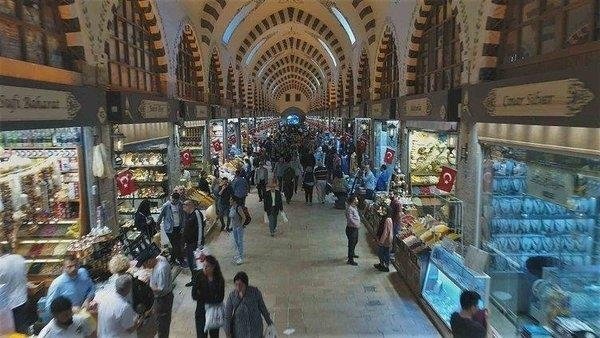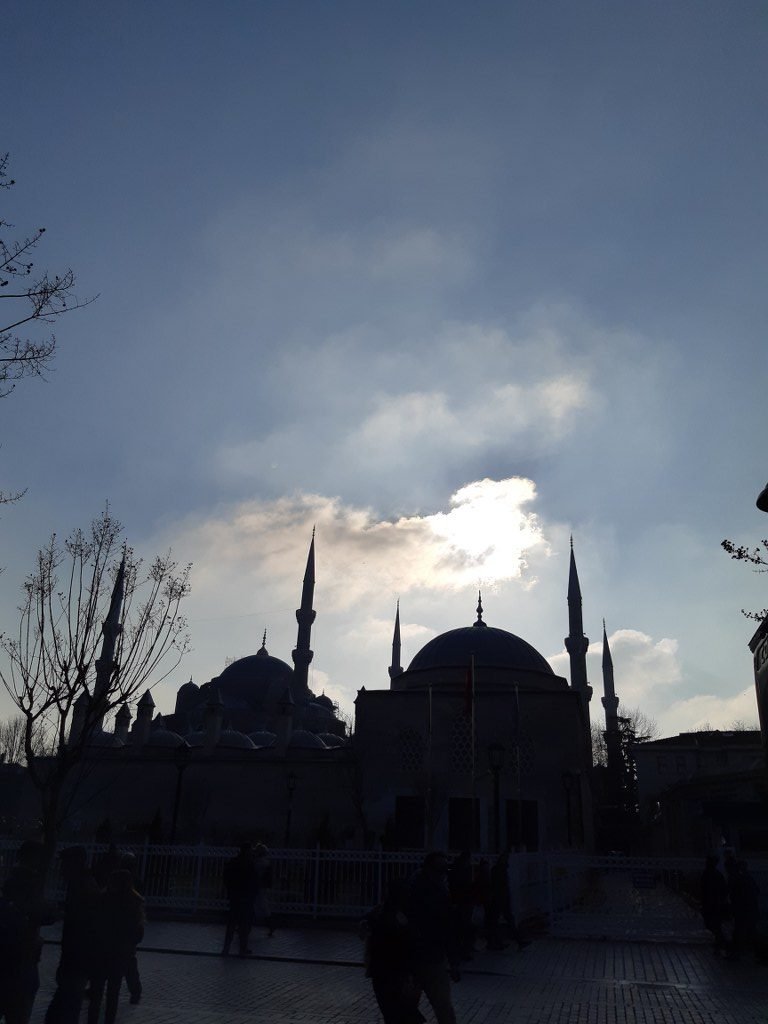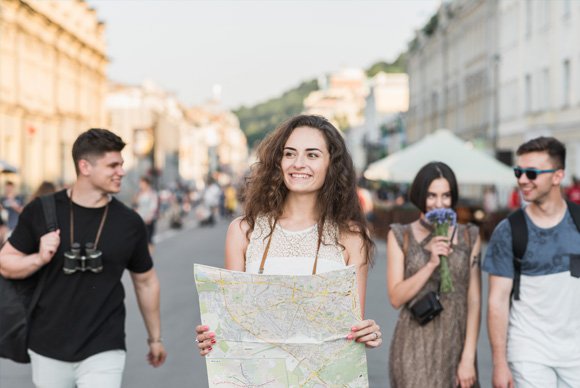Trade has always been more important for centuries in this city located between Asia and Europe. With its inexhaustible variety of products, the labyrinthine Grand Bazaar is at the center of an intense, frenetic commercial activity, as is immediately evident when observing the maze of streets between the bazaar and the Galata bridge. Everywhere the goods seem to overflow from the shops and invade the pavements.
Turkey is a textile production center and Istanbul is full of trendy shops. If you prefer to shop in one place, just choose one of the city’s many shopping malls, which offer Turkish and international branded goods. Wherever you go, beware of imitated products.
If you look through the shops located between the vaulted passages, you will discover internal courtyards or hans (consisting of two-story buildings around a courtyard and protected by a wooden door that was closed during the night) that house industrious artisan workshops.
The markets, bazaars and shops of Istanbul are always crowded and noisy for most of the week of the year. Gran Bazaar is certainly the most famous shopping center in the city. in the area where the Gran Bazaar is located (open from 08:30 to 19:30) there are also other bazaars such as Spice Market (open from 08:30 to 19:00), Mahmutpaşa and Tahtakale. While the first two are covered and foreign currencies are well accepted, the last two are uncovered and generally popular with locals. Then the Grand Bazaar is closed on Sundays and while the Spice Market is open all week. The shops of the historical markets, during religious holidays such as “Şeker Bayramı” and “Kurban Bayramı”, close only one day and are always open during the national holidays of the country.
 The “Han” were once numerous and dotted the center of Istanbul to provide temporary accommodation for travelers, their animals and goods. The typical han was designed as part of the mosque complex. When vans and trucks replaced horses and mules, the han lost their original function and many turned into neighborhoods of small factories and workshops. The han of Istanbul are generally in a bad state, but there you can breathe the oriental atmosphere of Istanbul of the past. The most famous examples are Valide Han, Zincirli Han, Kürkçü Han, Büyük Han.
The “Han” were once numerous and dotted the center of Istanbul to provide temporary accommodation for travelers, their animals and goods. The typical han was designed as part of the mosque complex. When vans and trucks replaced horses and mules, the han lost their original function and many turned into neighborhoods of small factories and workshops. The han of Istanbul are generally in a bad state, but there you can breathe the oriental atmosphere of Istanbul of the past. The most famous examples are Valide Han, Zincirli Han, Kürkçü Han, Büyük Han.
Most tourist shops accept euro and dollar. If the customer pays in cash, they can have a little discount. If you pay by credit card, most shops don’t add commission. In any case, it is better to resist the attempt to make you pay a small additional commission to the price expressed.
In the shops of Istanbul, haggling is not very common, as is known. We know that most of the objects purchased by tourists are found in the Grand Bazaar, the Spice Market and in the shops within the ancient city. In these bazaars, bargaining appears to be a necessity, otherwise you risk being ripped off. Another thing must be specified that; the shopkeepers of the Grand Bazaar are not as pushy as they used to be. The incessant insistence that is encountered in the other bazaars of other Arab countries, in the bazaars and markets of Istanbul, does not exist, indeed all the shopkeepers behave kindly towards all tourists. Sometimes they offer you a cup of hot tea to make you feel comfortable and to show you their hospitality. Don’t feel obligated to buy if the shopkeeper turns the shop upside down to show you the goods.
Istanbul, of course, offers a wide range of markets, bazaars and shops and often, these are specialized in one type of product and one is close to the other, to dispute their potential customers. The Grand Bazaar is the center of carpets and kilims, of real stones, of gold and silver, jewels, of leather, of well-fake bags, of ceramic objects, glass and various souvenirs. At the Grand Bazaar there are also all kinds of typical handicrafts; sea foam pipes, mother-of-pearl and jewelry boxes, rosaries made of semi-precious stones, reproduction of orthodox icons, etc.
The Spice Bazaar is a market of dried fruits, herbs, spices, cheeses and various types of herbal tea produced in Turkey, including pomegranate, apple and lime. In addition to this, some shops have been opened in recent years where they sell pastures and flavored soaps.
In the Mahmutpaşa market, hundreds of shops sell all kinds of clothing, including underwear, socks, towels and wedding dresses and shoes. In this market you can also buy costume jewelery.
The Çukurcuma district is more interesting for those looking for antiques. In dozens of shops they sell a wide assortment of antique objects, furniture and ceramic objects.
The Flea Market which is located in the Ortaköy district, on Sundays the square of Ortaköy is filled with stalls with souvenirs of different kinds for all tastes and budgets.
The Book Bazaar is located very close to the Grand Bazaar (at door number 7 of the G. Bazaar) towards the University of Istanbul where you can buy books in different languages, old magazines, tourist guides and academic theses.
The Fish Market, on the other hand, is located in the Kumkapı and Galatasaray districts (near Çiçek Pasajı) with dozens of fish restaurants next to it. In the center of the Beşiktaş district there is a fish market where you can buy fresh fish. The fish of the Marmara Sea, always sprinkled with water to keep them fresh, are inviting for passers-by.
Modern shopping malls in Istanbul are very popular for their entertainment and shopping opportunities. They have multiplex cinemas, fast food restaurants, stylish cafes and hundreds of other shops. Both on the Asian and European side there are more than 130 shopping centers and most of these are ultramodern skyscrapers where both the clothes of the major Turkish fashion houses and those of many famous brands are sold.















RECENT COMMENTS